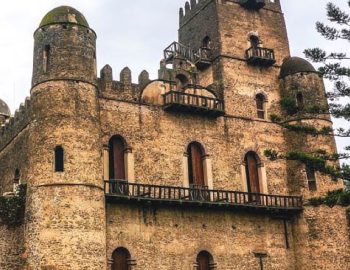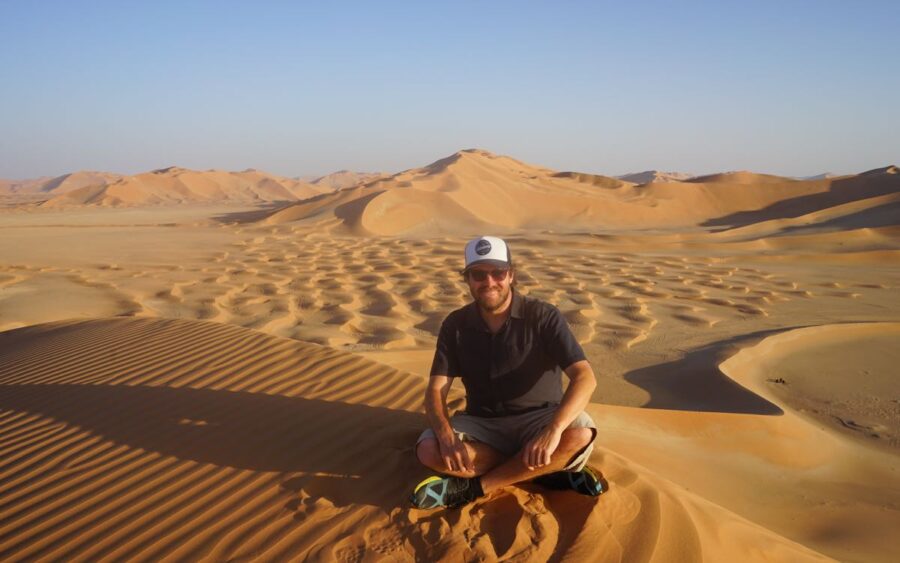These documentaries about Ethiopia show a land of rich history, stunning landscapes, and vibrant cultures that have captivated the imaginations of travellers and scholars for centuries.
Nestled in the Horn of Africa, this ancient nation boasts a heritage dating back thousands of years, with archaeological sites that reveal glimpses of early human civilizations.
Documentaries About Ethiopia
Documentaries about Ethiopia take you on a journey to explore the depth and breadth of Ethiopia’s story, uncovering its treasures, challenges, and the enduring spirit of its people.
Personally, I have visited Ethiopia two times, each time for one month, and explored all over the different regions. It’s one of the most fascinating countries I have visited.
Town of Runners (2012)
Town of Runners focuses on the small rural town of Bekoji in Ethiopia, which has gained international recognition for producing some of the world’s top long-distance runners. It follows the lives of two young girls, Hawii Megersa and Alemi Tsegaye, who aspire to become professional runners and escape poverty through their athletic talents.
The documentary provides insight into the harsh realities faced by aspiring athletes in Ethiopia, where running is not just a sport but a means of survival and a way out of poverty. It explores the sacrifices made by the athletes and their families, the rigorous training routines, and the hopes and dreams that drive them forward.
“Town of Runners” sheds light on the incredible dedication and resilience of these young athletes as they strive to overcome the odds and achieve their goals in the highly competitive world of international athletics.
This is one of the best documentaries about Ethiopia to watch that offers a glimpse into the role that running plays in Ethiopian culture and the pride that the town of Bekoji takes in its remarkable sporting achievements.
Black Gold (2006)
Black Gold explores the complex global coffee industry and its impact on the lives of coffee farmers in Ethiopia, the birthplace of coffee.
The documentary follows the journey of Tadesse Meskela, a representative of the Oromia Coffee Farmers Cooperative Union in Ethiopia, as he travels to London and Seattle in an attempt to negotiate better prices for the coffee produced by Ethiopian farmers.
Through Tadesse’s story, “Black Gold” sheds light on the challenges faced by coffee farmers in Ethiopia, including poverty, exploitation, and the volatile nature of the global coffee market.
The film also examines the role of multinational corporations, coffee traders, and consumer demand in shaping the coffee industry, highlighting issues such as fair trade, ethical sourcing, and sustainability.
A Walk to Beautiful (2007)
A Walk to Beautiful focuses on the issue of obstetric fistula, a devastating childbirth injury that occurs primarily in developing countries, where access to maternal healthcare is limited.
The documentary follows the stories of several Ethiopian women who suffer from obstetric fistula and their journey to receive treatment and reclaim their lives. It highlights the physical, emotional, and social consequences of the condition, which often leads to stigma, isolation, and rejection from their communities.
“A Walk to Beautiful” also explores the efforts of organizations such as the Addis Ababa Fistula Hospital in Ethiopia, which provides free surgical repair and rehabilitation services to women affected by obstetric fistula. The film showcases the transformative impact of these interventions, as women are able to regain their health, dignity, and sense of self-worth.
Through powerful storytelling and intimate interviews, “A Walk to Beautiful” raises awareness about obstetric fistula and the underlying issues of maternal health and reproductive rights in developing countries.
Omo Child: The River and the Bush (2015)
Omo Child: The River and the Bush follows the story of Lale Labuko, a young man from the Kara tribe in the Omo Valley of Ethiopia, who dedicates his life to rescuing “cursed” children known as “mingi.”
In certain tribes in the Omo Valley, children born out of wedlock, twins, or those with physical abnormalities are considered “mingi” and believed to bring bad luck to the community. As a result, they are often abandoned in the bush to die or killed outright to prevent misfortune.
Lale Labuko, who himself was nearly killed as a baby due to being considered “mingi,” decides to take a stand against this practice. He founded the Omo Child organization and works tirelessly to rescue “mingi” children and provide them with a safe home, education, and a chance at a better life.
The documentary follows Lale’s journey as he navigates cultural traditions, challenges societal norms, and fights to change attitudes towards these marginalized children. It sheds light on the cultural beliefs and practices in the Omo Valley, while also celebrating the courage and compassion of individuals like Lale who strive to make a difference.
Bal Ej: The Hidden Jews of Ethiopia (2016)
Bal Ej: The Hidden Jews of Ethiopia explores the history and culture of the Beta Israel community, also known as Ethiopian Jews or Falashas, who have lived in Ethiopia for centuries.
The documentary delves into the religious practices, customs, and traditions of the Beta Israel community, as well as their struggles for recognition and acceptance within Ethiopian society. It also examines their connection to Judaism and their desire to emigrate to Israel, which has been a long-standing dream for many members of the community.
“Bal Ej: The Hidden Jews of Ethiopia” sheds light on the challenges faced by the Beta Israel community, including discrimination, persecution, and displacement. It highlights their resilience and determination to preserve their cultural identity and religious heritage despite facing adversity.
Faya Dayi (2021)
Faya Dayi provides a poetic and immersive exploration of the ritualistic use of the stimulant plant khat (also known as qat or chat) in Ethiopia, particularly in the region of Harar.
Through stunning cinematography and minimalistic storytelling, “Faya Dayi” delves into the lives of individuals involved in the cultivation, trade, and consumption of khat. The film captures the interconnectedness of khat with Ethiopian culture, tradition, and socioeconomic dynamics, as well as its impact on individuals and communities.
While exploring the beauty and mystique surrounding khat, “Faya Dayi” also delves into the darker aspects of its use, including addiction, exploitation, and the cycle of poverty perpetuated by the trade.
The film provides a nuanced portrayal of the complexities surrounding khat, allowing you to contemplate its cultural significance and the broader societal issues it reflects.
Joanna Lumley’s Nile: Ethiopia (2010)
Joanna Lumley’s Nile is a documentary series presented by Joanna Lumley, a British actress, and television presenter. In the series, Lumley embarks on a journey along the Nile River, exploring the diverse cultures, landscapes, and histories of the countries through which the river flows.
The episode titled “Ethiopia” focuses specifically on Lumley’s travels through Ethiopia, a country rich in history, culture, and natural beauty. Throughout the episode, Lumley visits various locations along the Nile in Ethiopia, including ancient historical sites and rural villages.
Lumley’s journey gives you insights into Ethiopia’s fascinating past, including its ancient civilizations, religious traditions, and vibrant cultural heritage.
Lost Kingdoms of Africa: Ethiopia (2010)
Lost Kingdoms of Africa is a documentary series hosted by British historian and broadcaster Gus Casely-Hayford. In the series, Casely-Hayford travels across the African continent to explore its rich history, focusing on various ancient civilizations and lost kingdoms that have shaped the continent’s cultural heritage.
In the episode dedicated to Ethiopia, Casely-Hayford delves into the country’s historical legacy, particularly its ancient civilizations and kingdoms. He examines the rise and fall of powerful empires such as the Aksumite Empire, which flourished from around the 1st century AD to the 7th century AD and played a significant role in the development of early Christianity in Africa.
Casely-Hayford also explores other important historical sites and artefacts in Ethiopia, shedding light on the country’s diverse cultural heritage and contributions to world history.
Throughout the documentary, Casely-Hayford provides insights into Ethiopia’s unique cultural, religious, and political landscape, highlighting the enduring legacy of its ancient civilizations and the continuity of its traditions into the present day.
This is one of the more interesting documentaries about Ethiopia if you have an interest in some of the ancient history of the country.
Amazing Africa – Unique Wildlife in Ethiopia’s Highlands
Amazing Africa – Unique Wildlife in Ethiopia’s Highlands takes a look at some of the wildlife in the Ethiopian Highlands, in particular the Ethiopian wolf.
This is one of the best documentaries about Ethiopia to watch if you have an interest in the wildlife of the country.
Most Dangerous Ways To School: Ethiopia
Most Dangerous Ways To School: Ethiopia follows children of the Afar tribe in the Danakil Depression as they have to navigate one of the hottest and harshest places on the planet to get to school.
Ethiopia
From the towering rock-hewn churches of Lalibela to the bustling markets of Addis Ababa, Ethiopia’s diverse tapestry of traditions and peoples is a testament to its resilience and enduring allure, and these documentaries about Ethiopia show the nation to its fullest.
For more on the region have a look at the 10 best documentaries about Kenya.
If you plan on visiting the country then I highly recommend getting the Ethiopia (Bradt Travel Guide) to help plan your trip. It’s the guide that I used for my visits there.
Share the best documentaries about Ethiopia:





